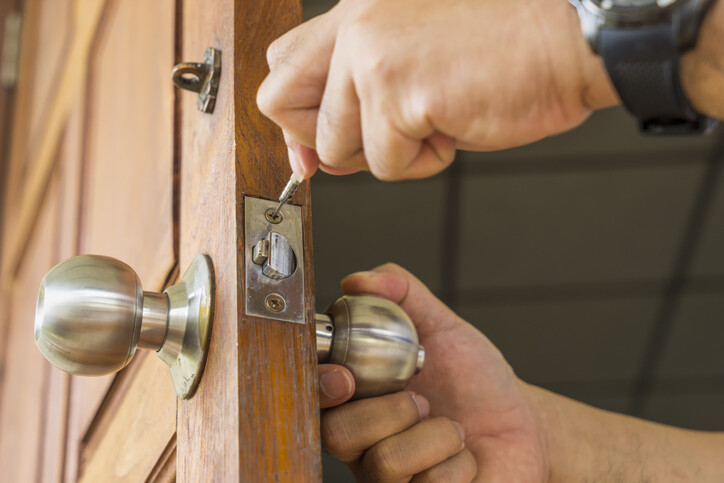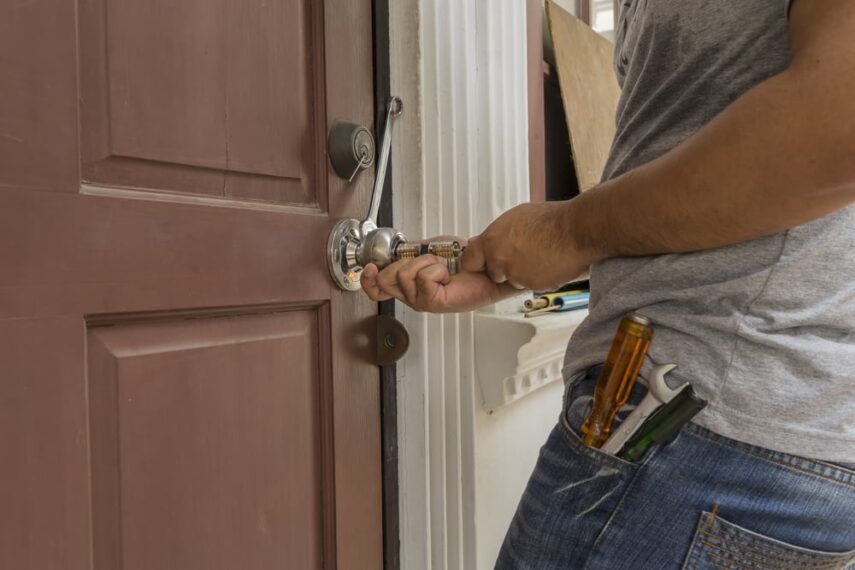Being locked out of your home, business, or car can trigger stress and uncertainty about the next steps. Typically, people search for local locksmith services online during such situations and often select the first option that appears. Unfortunately, this is precisely the opportunity dishonest individuals exploit to scam unsuspecting victims.
Scammers target those unfamiliar with legitimate locksmith practices, seeking to take advantage of high-stress moments. Staying composed and watchful when faced with stress is vital to safeguard yourself and your property. Read this article to learn how to identify and protect against locksmith scams.
Types of Locksmith Scams

In recent years, locksmith scams have increased in the US, leading to a decline in people’s trust in various trade workers. As these deceptive practices become more widespread, it’s crucial to be informed about the different tactics scammers employ and how to safeguard yourself from falling victim to their schemes. According to locksmithspros.org, a professional and nationwide locksmith service, some of the more common locksmith scams include:
1. Fake Advertising
Many scammers create legitimate-looking websites and run advertisements for their counterfeit businesses. The amount of online scam sites and ads has been so alarming that Google placed locksmiths on a list of restricted businesses that require advanced verification to register their business and run Google Ads in almost all US states.
2. Bait and Switch
Scammers can quote one surprisingly affordable price but present you with a staggeringly high bill after the job is done. They add unexpected charges for service or materials and sometimes even insist on getting paid in cash.
3. Purposeful Property Damage
Fraudsters damage or remove the door locking mechanism under the guise of repairs and refuse to replace it until the victim pays. Or they replace it with a lower quality one, charging an inflated price.
How to Recognize a Scam

In today’s digital age, staying informed and equipped with the knowledge to differentiate between a legitimate locksmith professional and someone attempting to deceive you is essential. By understanding the telltale signs of scams and being proactive in your approach, you can confidently navigate locksmith services and avoid falling victim to fraudulent activities. Some of the signs pointing to the likelihood of a scam are as follows:
Toll-Free Numbers
While some legitimate locksmiths also use toll-free numbers, ensure you’re not rerouted to a call center when calling a locksmith company. The person answering the phone must be able to tell you the name of the business, list their prices for various services, and provide sufficient explanation about their solutions. If you receive a generic greeting or a simple “Locksmith services,” it’s most likely a scam.
Shared Business Address
Always check if the address where the locksmith is registered is a genuine physical location. If multiple businesses share the same address, it may be a P.O. box indicating a scam. You can take the precaution of driving by the sites listed online and note the companies with a genuine physical address.
Unusually Low Prices
Most scammers advertise cut-rate prices for their services and are not transparent with their pricing. Locksmiths have overhead costs that must be covered, especially for night and weekend work, so the average price varies depending on the job. Always get an estimate beforehand, ask if there are additional charges, and compare the final bill with the estimate.
Unbranded Vehicles
Legitimate businesses use specially equipped vehicles branded with the company logo and a contact number, at the very least. Scammers will arrive in an unbranded vehicle and might even try to park further away.
Lack of Skill
Expert locksmiths have the experience and skills to open any lock. Even when servicing severely damaged or high-security locks, professionals have ways to deal with them and use drilling as a last resort. Most scammers may insist on drilling the lock, causing intentional property damage and charging enormous amounts for replacements and repairs.
Cash Payments
Legitimate locksmiths accept a variety of payment methods that suit the customers. Insisting on cash-only payments ensures no paper trail connecting the scammer to their victim. That way, if there are any complaints regarding the quality of the work, there is no proof of who that work was done by.
How to Protect Yourself from Locksmith Scams

To avoid being scammed, it’s essential to adopt measures that guarantee you’re accessing genuine services. To safeguard your interests and avoid falling prey to fraudulent activities, consider the following steps
Ask for Referrals
Find a trusted locksmith before you even need one. Ask friends or family to recommend a trusted professional, and if you’re searching online, call ahead and ask questions. Legitimate locksmiths can explain and answer any queries you may have.
Check Locksmith Reviews
Ensure their website hasn’t overwhelming 5-star reviews and that they aren’t random gibberish. Real businesses have a mix of good and bad reviews and real customer experiences.
Confirm Costs First
Always get quoted beforehand and ask for a paper or electronic invoice. While the final amount may differ slightly from the estimate due to unexpected work on the site, the price difference should not be significant.
Ask for Credentials
When a locksmith shows up at your door, always ask for an ID card and proof that they work for the company you hired. Some states require locksmiths to have a license issued by ALOA, so ask for that as well.
Be Vigilant
Pay attention during the unlocking process. If the person seems unsure of how to use their tools, is slow to start, or exaggerates the job’s complexity, they are most likely trying to pull a scam.
Don’t Sign Paperwork Before Reading
Scammers might try to rush you into signing papers agreeing to pay exorbitant fees or absolve them of any responsibility for faulty craftsmanship.
Final Thoughts
Staying informed and ready is crucial to protecting oneself from scams. Trustworthy locksmiths prioritize your security rather than quick gains. If you encounter a suspicious business or fall victim to a scam, don’t hesitate to report it to authorities or relevant organizations that track such incidents to contribute to the prevention of fraudulent activities.







